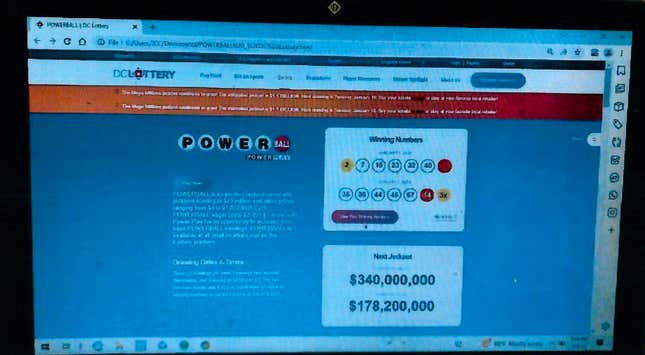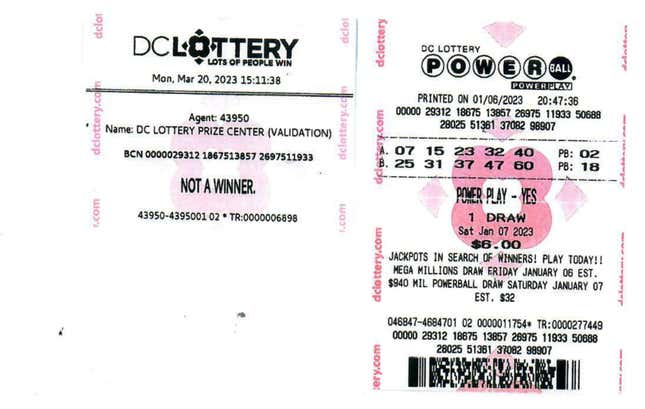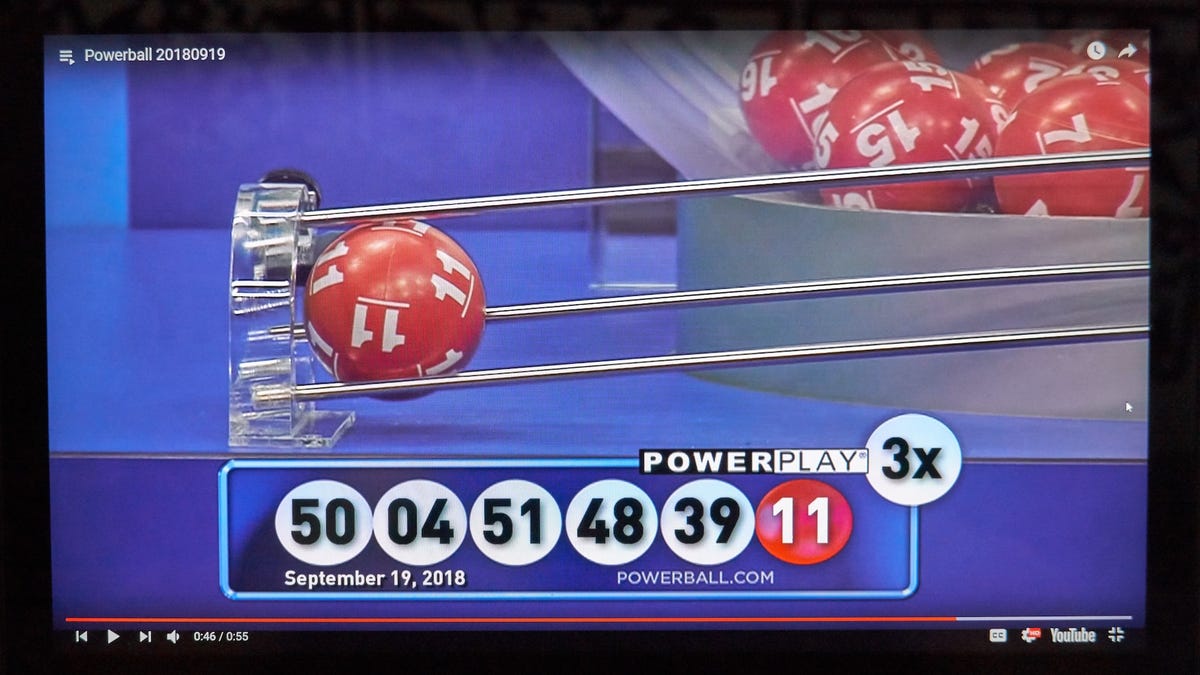A D.C. resident is suing the Powerball lottery system and the D.C. Office of Lottery and Gaming after a technical error left him without a prize of $340 million, accusing the lottery operators of conspiracy, negligence, and fraud.
In the lawsuit, plaintiff John Cheeks states that on Jan. 6, 2023, he bought a Powerball lottery ticket for a game whose winners were set to be announced the following day. Cheeks checked the D.C. Lottery website on Jan. 8 and saw his numbers selected as the winners, which entitled him to the $340 million jackpot. But when Cheeks tried to claim his prize, he was told he hadn’t won.
“‘Hey, this ticket is no good. Just throw it in the trash can,’” Cheeks said he was told by the D.C. Office of Lottery and Gaming, as reported by NBC Washington. “And I gave [the worker] a stern look. I said, ‘In the trash can?’ [They said] ‘Oh yeah, just throw it away. You’re not gonna get paid. There’s a trash can right there.’”

According to D.C. lottery operators, Cheeks’ numbers were posted by mistake by Taoti, the digital ad agency and contractor that operates the D.C. Lottery’s website on behalf of the local government.
Taoti, which is also being sued by Cheeks, claims that the man’s numbers were posted to the D.C. Lottery website as part of a quality assurance test and “were not the numbers drawn for the January 7, 2023 Powerball drawing.” Furthermore, Taoti claims the incorrect numbers were posted on Jan. 6, the day before the official drawing took place. Taoti removed Cheeks’s numbers from the D.C. Lottery website on Jan. 9—three days after it had posted Cheeks’s numbers online.
Rick Evans, Cheeks’s lawyer and a partner at the firm McCarthy Wilson LLP, doesn’t buy the argument presented by D.C. lottery operators. In a statement, Evans pointed out that neither Powerball nor the D.C. Lottery made any public service announcement that the Jan. 7 game had been compromised.
“They never stopped selling tickets toward the next Powerball Drawing, which was platformed on his winnings that were never paid out, and they never announced their error to Mr. Cheeks or to the public. They never stopped play and offered to refund every player their money from the compromised drawing, if that’s what happened,” Evans said.

Taoti founder and CEO Brent Lightner told Gizmodo via email on Wednesday that the company couldn’t comment on pending legal matters “however frivolous they may be.” Taoti has denied Cheeks’s accusations of wrongdoing and instead claimed that Cheeks actually purchased his Powerball ticket using the test numbers that were mistakenly posted in advance of the Jan. 7 drawing.
Gizmodo reached out to the D.C. Office of Lottery and Gaming and the Multi-State Lottery Association, the nonprofit that helps operate lottery games on a national level which is also named in the lawsuit, for comment on Wednesday morning but did not immediately receive a response.
Evans said the case raises important questions about the lack of safeguards in place to prevent these types of errors from occurring in lottery operations. Cheeks is asking the court to award him the full $340 million Powerball jackpot and millions more in damages. The next hearing for the case is scheduled for this Friday.
“This is not merely about numbers on a website; it’s about the reliability of institutions that promise life-changing opportunities, while heavily profiting in the process,” Evans said.

